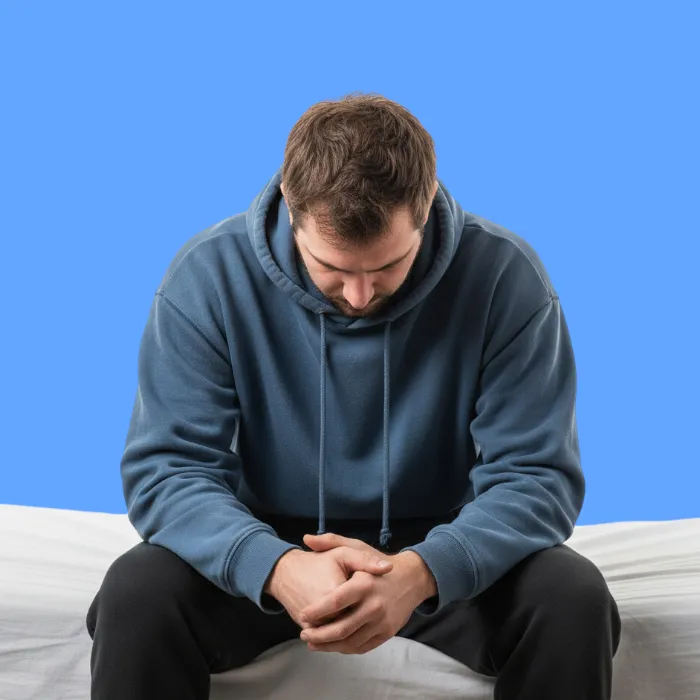What is depression?
Depression is a common mental disorder that affects mood, behavior, and thinking. It makes a person feel deep sadness or emptiness for long periods. It's not just a passing sadness, but a persistent condition that impacts daily life.
It can affect work, relationships, and even physical health, Often, people with depression lose interest in things they once enjoyed and feel like life has lost its meaning, even without a clear reason.
What are the causes of depression?
Depression can result from a mix of psychological, social, and biological factors. These include:
- Experiencing emotional trauma, such as losing a loved one
- Unemployment or ongoing financial stress
- Family history of depression
- Brain chemistry imbalances, like low serotonin levels
- Chronic illnesses such as diabetes or cancer
- Alcohol or drug abuse
- Lack of social support or feeling isolated
- Hormonal changes, such as postpartum shifts
What are the common symptoms of depression?

Depression symptoms usually develop gradually and vary from person to person. They include:
- Persistent sadness or feeling empty
- Loss of interest or pleasure in daily activities
- Sleep disturbances (too little or too much)
- Changes in appetite or weight
- Fatigue or low energy
- Difficulty concentrating or making decisions
- Feelings of guilt or worthlessness
- Thoughts of death or suicide
When should you see a doctor?
You should consult a mental health professional if symptoms affect your quality of life or persist for a long time. These include:
- Feeling sad or hopeless for more than two weeks
- Inability to perform daily tasks
- Thoughts of self-harm or suicide
- Noticeable changes in sleep or appetite
- Overwhelming guilt or worthlessness
- Social withdrawal
- Unexplained behavioral changes
- Lack of response to support from others
What are the treatment options for depression?
Treatment depends on the severity of the condition and may include:
- Psychotherapy, such as cognitive behavioral therapy
- Antidepressant medications like serotonin reuptake inhibitors
- Group or individual support sessions
- Problem-solving therapy
- Behavioral activation and daily activity encouragement
- Interactive therapy with specialists
- Regular physical exercise
- Lifestyle adjustments including sleep and nutrition
Can depression be cured?
Yes, depression can be treated, especially with early intervention and a proper treatment plan.
Recovery speed depends on factors like emotional support, treatment commitment, and symptom severity. Some people may need more time than others.
What are the tips for preventing depression?
Preventing depression is possible by adopting a healthy and supportive lifestyle. Tips include:
- Exercising regularly
- Maintaining positive social relationships
- Avoiding isolation and loneliness
- Getting consistent sleep and balanced nutrition
- Staying away from alcohol and drugs
- Talking to someone trustworthy when feeling down
- Engaging in hobbies and activities
- Seeking psychological help when needed
What are the possible complications of depression?
Untreated depression can lead to serious complications, such as:
- Suicide or self-harm
- Alcohol or drug addiction
- Problems in social and family relationships
- Job loss or poor academic performance
- Chronic physical illnesses
- Sleep and eating disorders
- Weakened immune system
- Social isolation and detachment
Frequently asked questions about depression
Is depression a mental or physical illness?
It's a mental disorder with physical effects on the body and brain.
Can children suffer from depression?
Yes, depression can affect all age groups, including children.
Do antidepressants cause addiction?
No, most antidepressants are not addictive.
Does depression affect the heart?
Yes, it may increase the risk of heart disease due to chronic stress.
Article summary
Depression is a common mental illness that is treatable. It affects mood, behavior, and relationships, and can lead to serious complications if left untreated.
Prevention starts with a healthy lifestyle, emotional support, and awareness of symptoms. Don't hesitate to seek help treatment is available and recovery is possible.